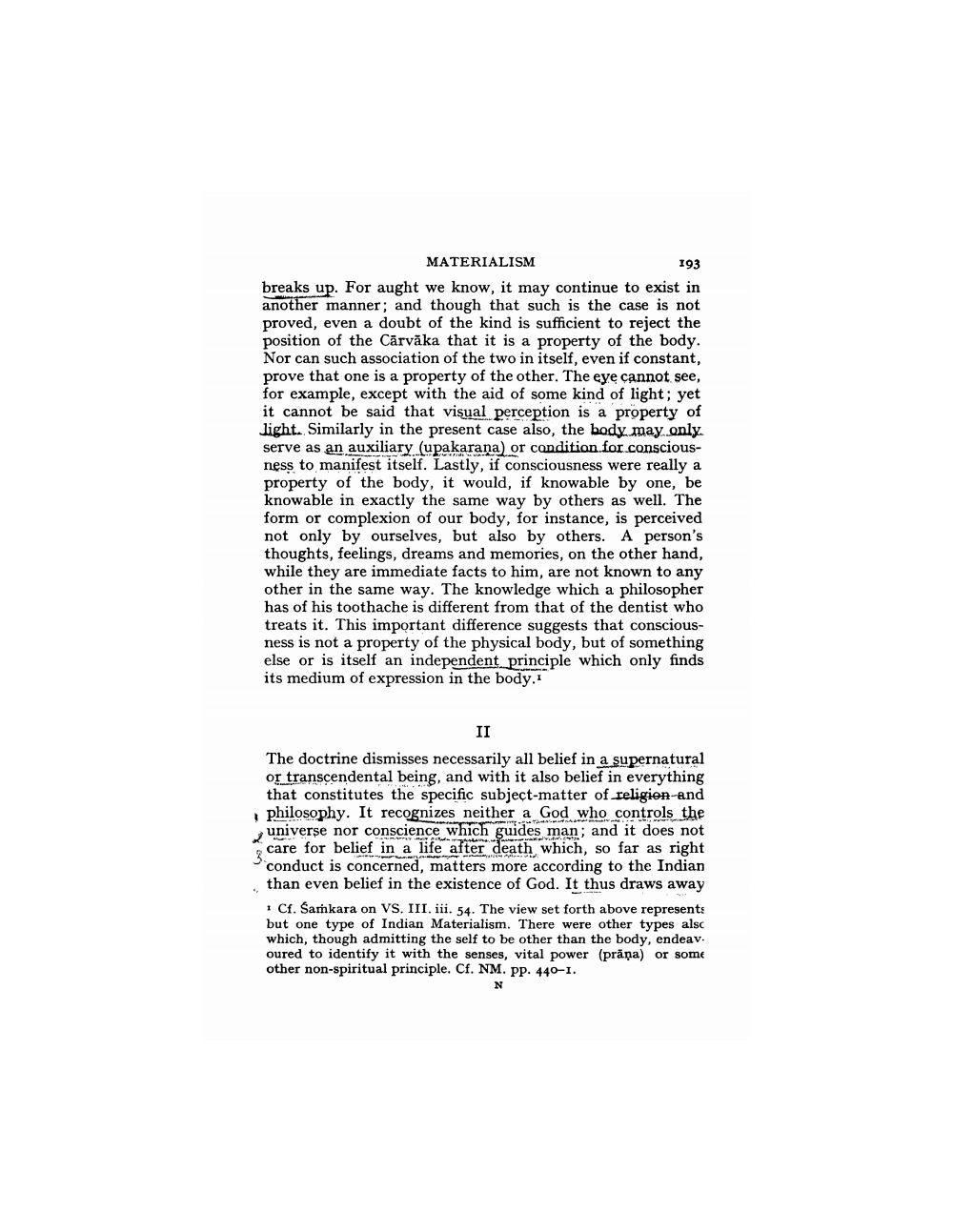________________
MATERIALISM
193 breaks up. For aught we know, it may continue to exist in another manner; and though that such is the case is not proved, even a doubt of the kind is sufficient to reject the position of the Cārvāka that it is a property of the body. Nor can such association of the two in itself, even if constant, prove that one is a property of the other. The eye cannot see, for example, except with the aid of some kind of light; yet it cannot be said that visual perception is a property of light. Similarly in the present case also, the body. may, only serve as an auxiliary (upakarana) or condition for consciousness to manifest itself. Lastly, if consciousness were really a property of the body, it would, if knowable by one, be knowable in exactly the same way by others as well. The form or complexion of our body, for instance, is perceived not only by ourselves, but also by others. A person's thoughts, feelings, dreams and memories, on the other hand, while they are immediate facts to him, are not known to any other in the same way. The knowledge which a philosopher has of his toothache is different from that of the dentist who treats it. This important difference suggests that consciousness is not a property of the physical body, but of something else or is itself an independent principle which only finds its medium of expression in the body..
II
The doctrine dismisses necessarily all belief in a supernatural or transcendental being, and with it also belief in everything that constitutes the specific subject-matter of religion and philosophy. It recognizes neither a God who controls the universe nor conscience which guides man; and it does not care for belief in a life after death which, so far as right conduct is concerned, matters more according to the Indian than even belief in the existence of God. It thus draws away 1 Cf. Samkara on VS. III. iii. 54. The view set forth above represents but one type of Indian Materialism. There were other types alsc which, though admitting the self to be other than the body, endeav. oured to identify it with the senses, vital power (prāņa) or some other non-spiritual principle. Cf. NM. PP. 440-1.
N




